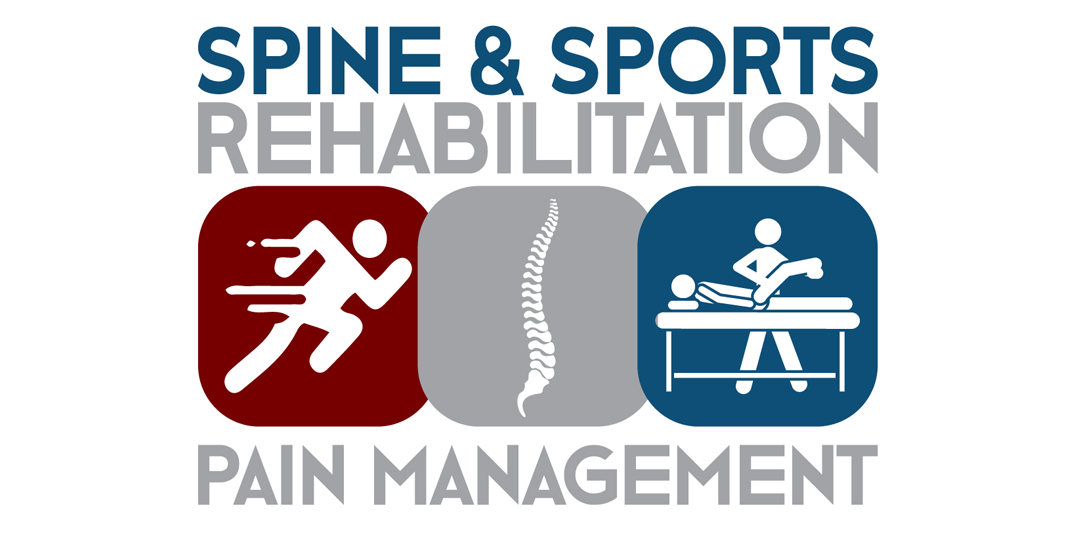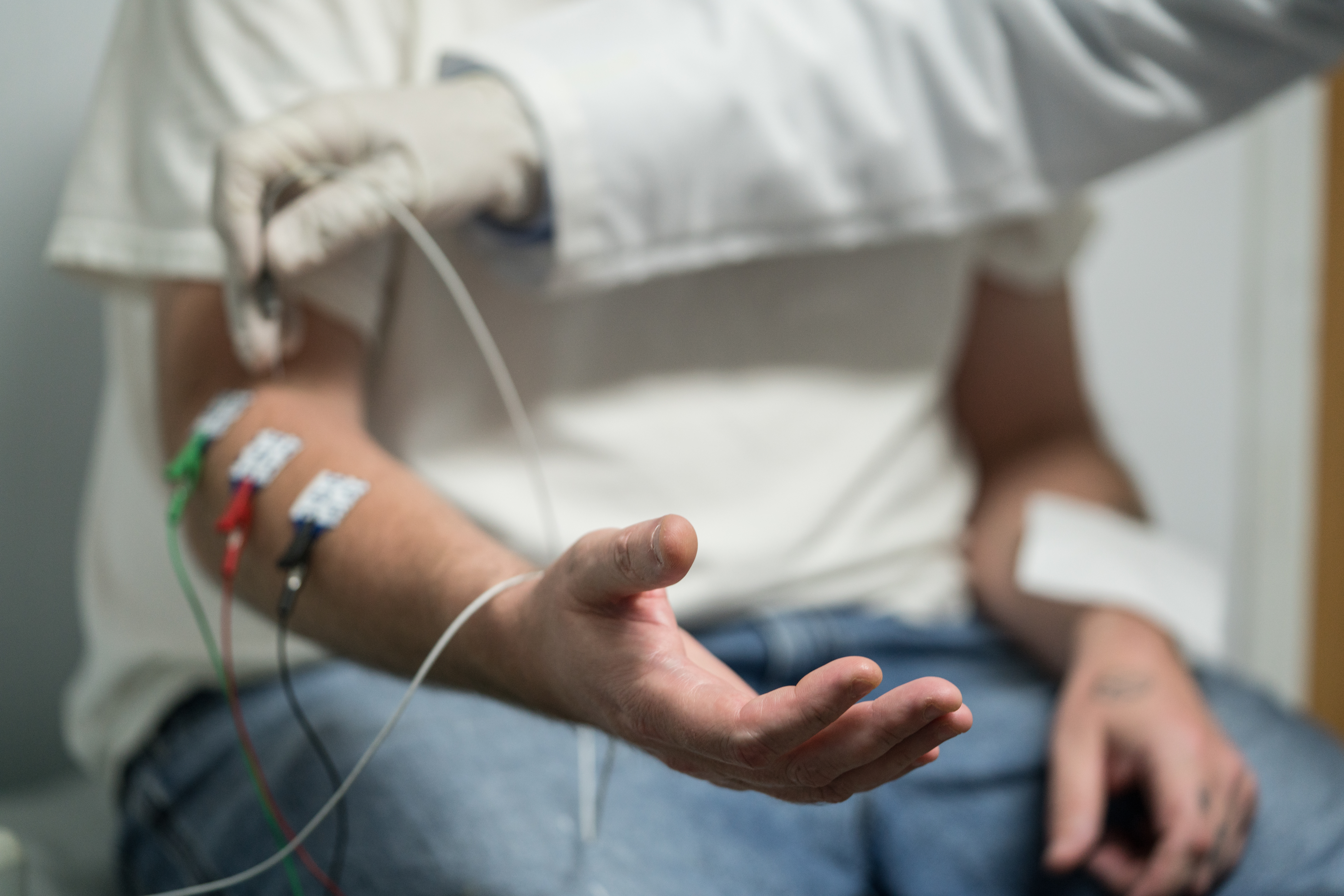Electromyography (EMG) and Nerve Conduction Velocity (NCV) tests are sister tests offered at Spine and Sports Rehabilitation Pain Management. Often run together, the EMG and NCV tests are imperative in diagnosing neuromuscular disorders by measuring the body’s responsiveness to nerve signals. These tests are performed to examine the functionality of the nervous system, spinal cord, and related muscular structures. EMG/NCV is used to determine:
- If a problem is muscular or neurological
- The presence of nerve damage
- The cause of nerve damage
- The effectiveness of treatment for prior diagnosed conditions
EMG
Electromyography uses tiny devices called electrodes to interpret the electrical signals which cause muscles to contract. EMG electrodes take the form of small needles inserted into muscle tissues. These needles record the electrical activity of the nerves. The electrical activity is then interpreted by one of our specialists to give an accurate diagnosis.
NCV
The Nerve Conduction Velocity is frequently performed together with an EMG. The NCV involves two surface electrodes placed on the skin, the stimulating electrode, and the recording electrode. Small, electric shocks are emitted from the stimulating electrode, while the recording electrode notes the response of the body to stimulus.
Disorders Diagnosed with EMG/NCV
- Guillain-Barre syndrome
- Carpal tunnel syndrome
- Charcot-Marie-Tooth (CMT) disease
- Herniated disk disease
- Neuropathy
- Sciatic nerve problems
- Pinched nerves
- Muscular dystrophy
- Polymyositis
- myasthenia gravis
- Polio
- Amyotrophic lateral sclerosis
- Recovery from previously diagnosed disorders
Symptoms Indicating Nerve Damage
- Tingling
- Numbness
- Muscle weakness
- Muscle cramping
- Limb pains
- Burning sensations
- Muscle fatigue
How To Prepare For EMG/NCV
- Food and medication: Ask our specialists if you should stop your prescription or over-the-counter medications. Certain medications, like Mestinon (pyridostigmine), can not be taken. Fasting is not necessary, but avoid caffeine and high sugar intake.
- Bathing: Take a shower or bath shortly before the test to remove oils from your skin.
- Lotions: Do not apply any lotions or skincare products to the skin a few days before your EMG/NCV.
- Smoking: Do not smoke shortly before the test.
Precautions
Let our specialists know if you engage in any of the following behaviors, or are affected by the following risk factors:
- Alcohol abuse
- Use of certain medications
- Diabetes
- Hypothyroidism
- Systemic diseases
- Pacemakers or electrical medical devices
- Use of blood thinners
- Have a blood clotting disorder
What To Expect During The Test
- You will be asked to remove any metal, such as jewelry, which may interfere with the tests.
- You will need to sit or lie down for the procedure.
- The sensation of EMG/NCV tests may be minorly uncomfortable but are not generally painful. If you experience pain, tell your doctor. Many report the small shocks to feel like muscle spasms or twinges.
- The test typically lasts between 20 and 90 minutes.
- EMG/NCV may be run on a few different locations for a more accurate diagnosis.
- EMG/NCV is an outpatient procedure, meaning you will not need to stay overnight following the tests.
Risks
Both EMG and NCV tests are extremely low-risk procedures. During the exam, patients report some slight discomfort with insertion of needle electrodes and electrical pulses. Patients may feel some soreness or be bruising in the area a day or so following the procedure. If you experience swelling or signs of infection, contact our doctors.

